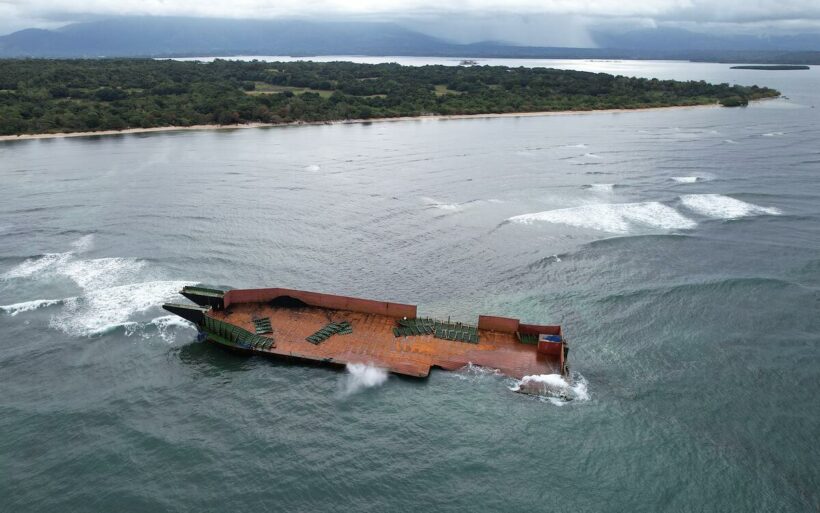Pledges-heightened Campaign to Protect Water Bodies
The Philippine-Misereor Partnership Inc. (PMPI) is extremely worried about the recent coal barge accident in Zambales that devastated a crucial fish sanctuary alongside the catastrophic coal spill in Sorsogon.
The MV Katapatan 2, apparently owned by SMC Shipping and Lighterage Corp, a subsidiary of San Miguel Corporation, ran aground with over 11,000 metric tons of coal, polluting the protected waters of Masinloc-Oyon Bay, Zambales, and threatening a designated fish sanctuary and its delicate marine ecosystem. Meanwhile, in Sorsogon, a barge carrying capsized coal near Sorsogon City amid Severe Tropical Storm “Kristine.” These incidents not only threaten the livelihood of local fishing communities but also pose serious risks to marine biodiversity, water quality, and the health of nearby populations.

Photo by Greenpeace.
Our coastal and marine ecosystems are among the Philippines’ most treasured natural resources, providing sustainability and income to millions and supporting invaluable biodiversity. Incidents like these highlight the urgent need to task fossil fuel companies that prioritize profit over the risks of fossil fuels or coal energy to humanity. We must transition from fossil fuels, which continue to jeopardize our communities and ecosystems and can bring us closer to catastrophic conditions due to global warming and climate change. We must transition to a safer, cleaner, more sustainable energy source.
We call on the responsible parties and relevant government agencies to:
- Conduct Immediate Clean-Up and Rehabilitation: We demand swift, transparent, and effective action to contain the spill, clean affected areas, and rehabilitate impacted marine sanctuaries and coastal ecosystems. This response must prioritize the restoration of biodiversity and the livelihood of affected communities.
- Hold Responsible Parties Accountable: All parties responsible for these harmful incidents must be held accountable. PMPI demands strict enforcement of fines, penalties, and reparative measures to ensure that those responsible bear the financial and environmental costs of cleanup, rehabilitation, and compensation.
- Review and Strengthen Regulations on Hazardous Materials Transport: This incident highlights the need for stricter regulation and monitoring of coal and other hazardous material transportation, especially through ecologically sensitive areas. PMPI urges authorities to implement stronger safeguards to prevent future incidents and to enhance oversight of compliance with environmental standards.
These incidents underscore the urgent need for the Philippine government to prioritize and accelerate the transition to renewable, clean energy sources. Moving away from fossil fuels will reduce environmental risks, protect vulnerable communities, and support the nation’s commitment to combat climate change.
Civil Society Organizations to Launch Campaign to Rescue Rivers, Lakes, Seas in Distress.
In response to the growing problem of pollution and destruction of marine resources due to human activities highlighted by the recent environmental disasters, Rights of Nature PH with PMPI will soon launch a nationwide campaign dedicated to rescuing and revitalizing the country’s rivers, lakes, and seas. This campaign will address the mounting threats posed by fossil fuel spills, waste mismanagement, and other destructive practices that have polluted our waterways and degraded vital marine ecosystems. it recognizes the urgent need to mobilize communities, advocate for stricter environmental policies, and amplify the voices of those directly impacted by environmental damage.
PMPI further calls on the government to establish clear, time-bound commitments toward a fossil fuel-free future, investing in sustainable energy alternatives that safeguard people and ecosystems. We stand in solidarity with the affected communities and urgent collective action to protect our nation’s natural resources for present and future generations.
——————–
Photo credits to: Noel Celis / Greenpeace and Vic Janoras/INQPlus Contributor
